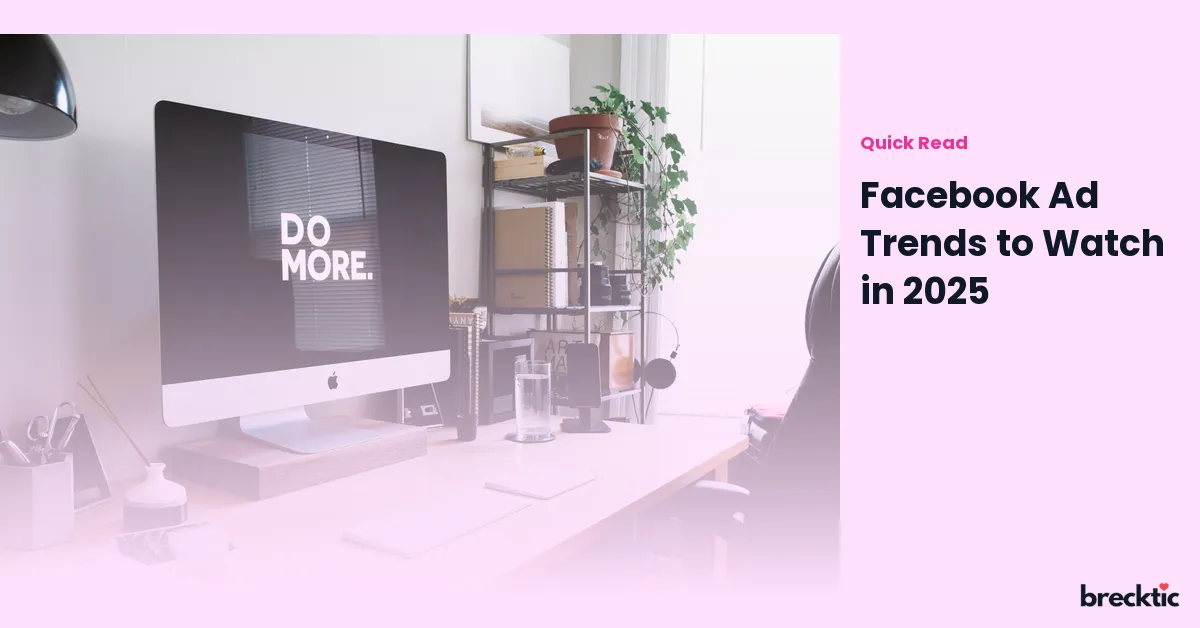As we move through 2025, Facebook advertising continues to evolve rapidly. With over 3.43 billion active users, Meta's platforms—Facebook, Instagram, and WhatsApp—remain central to digital marketing strategies. In this blog post, we'll explore the key Facebook ad trends shaping the landscape this year.facebook.com+6reuters.com+6sproutsocial.com+6
1. AI-Powered Ad Automation
Meta is pushing the boundaries of automation in advertising. By the end of 2026, the company plans to enable brands to fully create and target advertisements using artificial intelligence. Advertisers will be able to generate complete ad campaigns—including images, videos, and text—by simply supplying a product image and budget. AI will then determine optimal ad targeting on platforms like Instagram and Facebook, while also offering budget recommendations. businessinsider.com+6investopedia.com+6theguardian.com+6theguardian.com+4reuters.com+4investopedia.com+4
This shift aims to simplify the advertising process, making it more accessible for small and medium-sized businesses. However, some large brands remain cautious about ceding control over ad creation to Meta and question the quality of AI-generated visuals. arxiv.org+5theverge.com+5wsj.com+5socialmediatoday.com+12wsj.com+12investopedia.com+12
2. Enhanced Targeting and Personalization
Facebook's advertising platform offers a range of targeting options to help advertisers reach their desired audience. These include demographic targeting, interest-based targeting, behavioral targeting, and location-based targeting. By leveraging these options, advertisers can create more personalized and relevant ads for their audience. wordstream.com
Additionally, Facebook's Lookalike Audiences feature allows advertisers to reach new users who share similar characteristics with their existing customers. This can help expand the reach of campaigns and attract potential customers who are more likely to engage with the brand. en.wikipedia.org+1wordstream.com+1
3. Rise of Video and Interactive Content
Video content continues to dominate social media platforms, and Facebook is no exception. Short-form videos, such as Reels, are gaining popularity among users and advertisers alike. These videos are engaging and can effectively convey a brand's message in a concise format. leadsbridge.com
Interactive content, such as polls, quizzes, and augmented reality (AR) ads, is also on the rise. These formats encourage user participation and can lead to higher engagement rates. By incorporating interactive elements into ads, brands can create a more immersive experience for their audience.
4. Integration of E-Commerce Features
Facebook continues to enhance its e-commerce capabilities, allowing businesses to sell products directly through the platform. Features like Facebook Shops and Marketplace enable brands to showcase their products and facilitate transactions without users having to leave the platform.
This integration streamlines the shopping experience for users and provides businesses with additional opportunities to drive sales. Advertisers can leverage these features to create seamless shopping experiences and reach customers at various stages of the buying journey.leadsbridge.com+5sproutsocial.com+5cordelialabs.com+5
5. Focus on Privacy and Data Security
With increasing concerns over data privacy, Facebook is implementing measures to ensure user information is protected. The platform is enhancing its privacy settings and providing users with more control over their data.
Advertisers are encouraged to comply with data protection regulations and adopt transparent practices in their advertising strategies. By prioritizing privacy and data security, businesses can build trust with their audience and maintain a positive brand image.
6. Growth of Influencer Collaborations
Influencer marketing remains a powerful strategy for brands looking to reach new audiences. Collaborating with influencers allows businesses to tap into established communities and gain credibility through trusted voices.
Micro and nano influencers, who have smaller but highly engaged followings, are becoming increasingly valuable partners for brands. These influencers often have a more personal connection with their audience, leading to higher engagement rates and more authentic promotions.
7. Emphasis on Community Building
Building a community around a brand fosters loyalty and encourages repeat business. Facebook Groups and other community features provide platforms for users to connect with brands and each other.
By actively engaging with their community, brands can gather valuable feedback, address customer concerns, and create a sense of belonging among their audience. This approach not only strengthens customer relationships but also enhances brand advocacy.
8. Adoption of Augmented Reality (AR) Ads
Augmented Reality (AR) ads are gaining traction as they offer immersive and interactive experiences for users. Facebook's AR tools allow advertisers to create ads that users can engage with in real-time, such as trying on virtual products or visualizing items in their environment.
These innovative ad formats can increase user engagement and provide a memorable brand experience. As AR technology becomes more accessible, it's expected that more brands will incorporate AR into their advertising strategies.cordelialabs.com
9. Real-Time Analytics and Performance Tracking
Facebook's Ads Manager continues to evolve, offering advertisers real-time analytics and performance tracking tools. These features allow businesses to monitor the effectiveness of their campaigns and make data-driven decisions to optimize performance.
By analyzing metrics such as click-through rates, conversion rates, and return on ad spend, advertisers can identify areas for improvement and adjust their strategies accordingly. This agility ensures that campaigns remain effective and aligned with business objectives.
10. Sustainability and Ethical Advertising
Consumers are increasingly concerned about sustainability and ethical practices. Brands that demonstrate a commitment to environmental responsibility and social good resonate more with today's conscious consumers. voguebusiness.com
Incorporating sustainability messages into advertising campaigns can enhance brand image and attract like-minded customers. However, it's crucial that these claims are authentic and backed by genuine actions to avoid accusations of "greenwashing."
Conclusion
The landscape of Facebook advertising in 2025 is characterized by technological advancements, increased personalization, and a focus on user experience. By staying informed about these trends and adapting strategies accordingly, businesses can effectively engage their audience and achieve their marketing objectives.
Embracing AI automation, enhancing targeting capabilities, and prioritizing privacy and sustainability are key to staying competitive in the evolving digital advertising space. As Facebook continues to innovate, advertisers must remain agile and proactive in leveraging new tools and features to maximize their impact.

